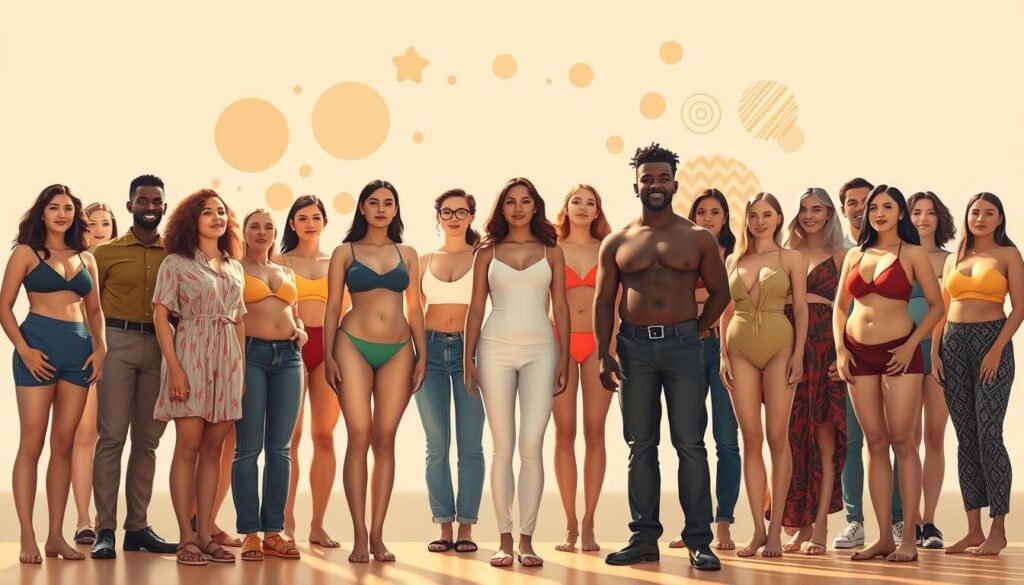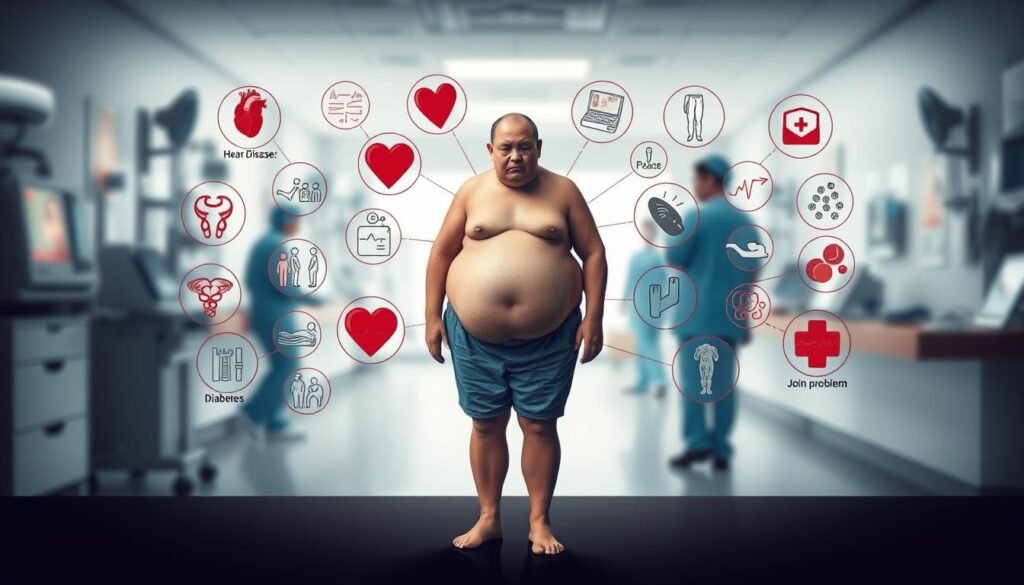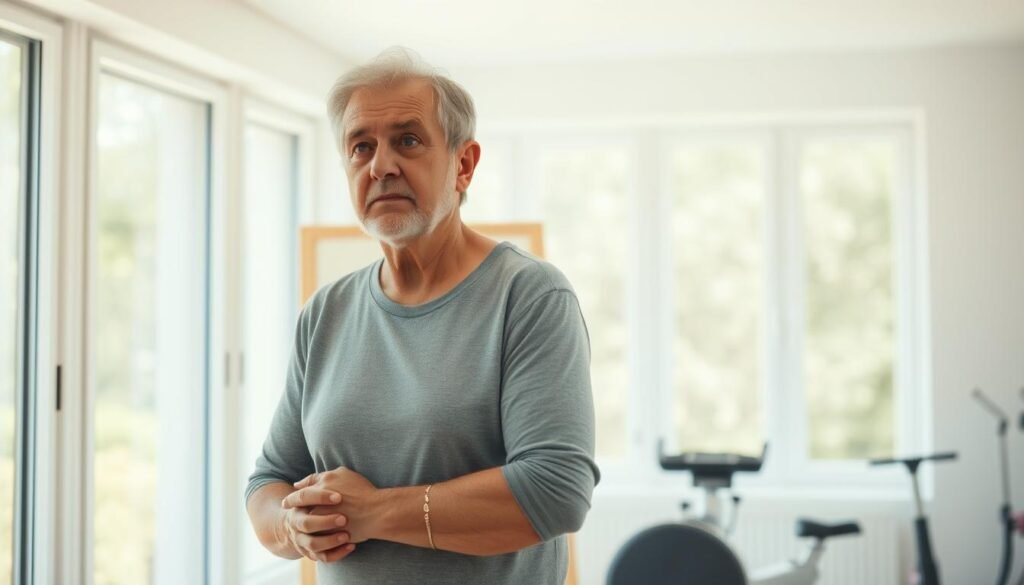Standing in front of the mirror last week, I noticed how my eyes instinctively darted to areas society taught me to critique. That moment wasn’t new—it was a ritual spanning years. Like many, I’ve cycled through diets promising transformation, only to feel emptier with each attempt. Why does chasing a smaller version of ourselves often leave us feeling smaller in spirit, too?
Jenn Hand, a holistic nutritionist, once shared something that stuck: “The allure of quick fixes fades when we realize true change grows from self-compassion, not punishment.” Her words echoed what I’d felt but couldn’t articulate. Diets thrive on temporary hope, yet they rarely address the quiet ache of feeling disconnected from our own skin.
This isn’t just about food or weight. It’s about untangling worth from numbers—on scales, tags, or societal charts. I’ve spent countless hours researching, talking to experts, and confronting my own fears. What if healing begins when we stop fighting our bodies and start listening to them?
Our world shouts that shrinking ourselves is the answer. But what happens when we dare to question that narrative? This exploration isn’t about rejecting health—it’s about redefining it through kindness rather than control.
Key Takeaways
- Diet culture often prioritizes short-term changes over lasting self-compassion
- Therapeutic approaches can address deeper emotional patterns tied to body image
- Honesty about struggles creates space for genuine personal growth
- Societal pressures frequently conflict with authentic self-acceptance
- Research supports combining practical strategies with emotional healing
Understanding Body Acceptance in a Diet Culture
Last month, I scrolled through social media and counted 17 ads for weight loss supplements before lunch. This bombardment isn’t accidental—it’s the heartbeat of a society obsessed with shrinking bodies. Diet culture sells more than products; it peddles the idea that thinness equals worthiness.
The Impact of Societal Expectations on Self-Image
Researchers found people see 400-600 media messages about ideal bodies weekly. From magazine covers to fitness influencers, these images create invisible rulers measuring our value. “I spent years believing my jeans size determined my success,” a client recently confessed during a coaching session.
| Aspect | Diet Culture Message | Body Acceptance Approach |
|---|---|---|
| Goals | Lose weight quickly | Nourish consistently |
| Food Relationship | Count calories | Honor hunger cues |
| Self-Worth | Tied to scale numbers | Rooted in inherent value |
| Time Frame | 30-day challenges | Lifelong practices |
Navigating the Pressures of Dieting and Weight Loss
Friends often don’t realize how “Have you tried intermittent fasting?” comments sting. Even healthcare providers sometimes focus on weight loss over holistic health markers. A 2022 study revealed 68% of participants felt shamed about their bodies during medical visits.
Repeated dieting attempts taught me something crucial: each failed plan deepened the belief that I was the problem. Now I recognize the real issue—systems profiting from our self-doubt. Breaking free starts with questioning who benefits from our endless pursuit of smaller bodies.
How Therapy Offers Support for Body Positivity
During a particularly raw therapy session last spring, I finally named the elephant in the room: “What if I never achieve society’s ‘ideal’ size?” My therapist leaned forward, her response gentle yet revolutionary: “What if your worth exists independently of that question?”
Personal experiences with therapy and body image
Jenn Hand’s blog post about her eight-year journey resonated deeply. She wrote: “Therapy didn’t erase my food struggles—it helped me hear my own voice through the dieting noise.” Like Jenn, I discovered that addressing emotional patterns around eating created space for curiosity rather than shame.
Cognitive behavioral techniques helped me intercept thoughts like “I shouldn’t eat this” and replace them with “What does my body need right now?” Over time, this shifted my focus from weight management to genuine self-care.
Insights from holistic nutrition and coaching
A nutrition coach once shared a game-changing perspective: “Food isn’t morality—it’s energy for living your life.” This philosophy, combined with therapy’s emotional tools, helped me rebuild trust with my body after years of restrictive dieting.
Group sessions revealed something powerful: many people share similar struggles with body image, yet feel isolated. Connecting with others navigating this path reminded me that health includes mental nourishment—not just physical measurements.
Can therapy help me accept my body if I’m fat forever?
A friend recently asked me, “What happens when you stop fighting what might never change?” Her question lingered like fog on a mirror—blurring old patterns while revealing new clarity. Many of us wrestle with the tension between wanting peace with our bodies and fearing permanent dissatisfaction.
Working through this in counseling taught me something unexpected: growth often lives in uncomfortable truths. Sessions sometimes felt like peeling an onion—each layer revealing deeper beliefs about worthiness tied to weight. One week I’d feel empowered; the next, defensive about eating habits formed over years.
Research shows 78% of people with chronic weight concerns experience shame cycles. My breakthrough came when a therapist reframed my struggle: “What if your energy spent battling weight gain could fuel self-discovery instead?” This shifted my focus from losing pounds to reclaiming mental space.
Three key insights emerged:
- Acceptance isn’t resignation—it’s acknowledging reality to make conscious choices
- Body neutrality bridges the gap between frustration and compassion
- Professional guidance helps untangle food relationships from self-worth
I once believed loving my form required changing it. Now I understand that peace grows when we stop equating size with success. The journey isn’t linear—some days I still hear diet culture’s whispers. But having tools to question those voices makes all the difference.
In the next sections, we’ll explore practical strategies that helped me transform “I need to lose weight” into “I deserve to thrive at any size.” Sometimes the most radical change begins with simple shifts in perspective.
Breaking the Diet Cycle: Why Dieting Fails
My closet still holds jeans from every size I’ve cycled through over the decade—a tangible timeline of false promises. Each pair whispers memories of excitement followed by frustration when the weight loss didn’t stick. Jenn Hand calls this the “boom-bust rhythm” of diet culture, where temporary victories mask systemic failures.

Short-term fixes versus lasting change
Fad diets work like fireworks—brief bursts of spectacle ending in darkness. I once lost 15 pounds in a month by cutting entire food groups, only to regain 20 within six weeks. Research shows 95% of restrictive diets fail long-term, often triggering metabolic changes that make future weight gain more likely.
The lure of quick results and its pitfalls
We’re wired to crave instant solutions. “Drop a dress size by Friday!” headlines exploit this vulnerability, ignoring how rapid weight loss frequently sacrifices muscle mass and mental peace. My worst crash diet left me lightheaded at work while obsessing over calories instead of living fully.
Three truths reshaped my perspective:
- Most lost pounds return within 2-5 years
- Chronic dieting increases stress hormones
- True nourishment involves joy, not just numbers
Breaking free required asking new questions: What if sustainable health feels like curiosity, not control? Shifting focus from shrinking to thriving helped me rediscover energy for hobbies and relationships—the real measures of a life well-lived.
Embracing Body Changes Over Time
Three summers ago, I found a box of old photos that revealed something startling—my body had been quietly evolving long before I noticed. Our cells regenerate completely every 7-10 years, creating what scientists call a “biological mosaic.” This natural rhythm means we’re literally not the same people we were a decade ago.
Understanding natural body fluctuations
Data from aslysun/Shutterstock shows weight shifts of 5-15 pounds annually are common across all normal weight ranges. I used to panic when my jeans fit differently each season. Now I see these shifts as proof my body adapts to life’s demands—career changes, grief, even joyful milestones.
| Perspective | Diet Culture View | Body Acceptance Approach |
|---|---|---|
| Time Frame | Daily weigh-ins | Multi-year patterns |
| Focus | Eliminating curves | Honoring energy needs |
| Outcome | Guilt over weight gain | Celebration of resilience |
Celebrating personal growth through transformation
My laugh lines map decades of joy. The softness around my middle? Evidence of meals shared with loved ones. “Bodies are living journals,” a yoga instructor once told me. Her words stuck—each change tells stories no scale could measure.
When I stopped fighting fluctuations, something shifted. Energy once spent tracking weight now fuels creative projects. Friends remark how I glow differently these days. They’re noticing not a smaller frame, but the radiance of someone making peace with life’s beautiful impermanence.
The Psychological Aspect: Mind, Thoughts, and Acceptance
Last Tuesday, my journal pages revealed a pattern—eight self-critical comments about my appearance before breakfast. This wasn’t about vanity. It was proof of how deeply societal ideals had wired my mind to equate worth with physical form. Negative self-talk often masquerades as motivation, whispering lies like “You’d be happier five pounds lighter.”

Catching negative self-talk and inner criticism
Jenn Hand’s “thought audit” technique changed my relationship with internal dialogue. I began noticing phrases like “People judge you for that dessert” popping up during meals. Research shows these automatic thoughts often stem from cultural conditioning rather than personal truth.
| Situation | Critical Voice | Compassionate Response |
|---|---|---|
| Clothes shopping | “This outfit highlights your weight gain“ | “My comfort matters more than size tags” |
| Social events | “They’re staring at your body“ | “I’m here to connect, not perform” |
| Meal choices | “You’ll regret eating that” | “Food nourishes my energy and joy” |
Reframing critical voices with self-compassion
When I catch myself spiraling into “I need to lose weight” territory, I now pause and ask: “Would I say this to someone I love?” Cognitive restructuring techniques helped transform my mental scripts. Instead of shaming post-meal thoughts, I practice gratitude for nourishment.
A 2023 behavioral study found participants using self-compassion practices reduced disordered eating patterns by 41%. This isn’t about silencing inner voices—it’s about changing who gets the microphone. Some days feel easier than others, but progress lives in the trying.
Exploring the Connection Between Weight Loss and Health
Last winter, my doctor’s office waiting room had two conflicting posters—one promoting weight loss supplements, another listing heart-healthy habits. This visual clash mirrors our cultural confusion: equating health with numbers rather than sustainable choices. Research from aslysun/Shutterstock shows 41% of Americans live in larger bodies, facing both genuine health risks and harmful stereotypes.
Recognizing health risks linked to obesity
Conditions like diabetes and heart disease occur more frequently at higher body weight ranges. However, studies confirm shame-based approaches backfire—patients avoiding medical care due to weight stigma often face delayed diagnoses. The key lies in separating factual data from judgment:
| Health Priority | Weight-Focused Approach | Health-Focused Approach |
|---|---|---|
| Goals | Lower BMI | Improve stamina |
| Measurement | Scale numbers | Blood pressure |
| Focus | Calorie restriction | Consistent movement |
Balancing physical well-being with body acceptance
I once canceled gym memberships fearing judgment about weight gain. Now I walk daily—not to shrink, but to strengthen my joints. Nutritionists emphasize adding vegetables before restricting foods. This shift from punishment to care helped me honor hunger cues while managing prediabetes risks.
True wellness includes mental health. A 2021 Johns Hopkins study found self-compassion practices reduced stress-related disorders in 67% of participants. My journey taught me: we can pursue vitality without making peace conditional on size. What if health became about feeling energized rather than earning approval?
Developing a Healthy Relationship with Food
Last Thursday, the aroma of freshly baked bread filled my kitchen as I prepared a meal without guilt for the first time in years. This moment marked a turning point in my journey from viewing food as an adversary to embracing it as a source of nourishment and joy. Jenn Hand’s philosophy of “eating with intention, not inhibition” became my compass during this transformation.

Mindful eating practices for self-care
I began practicing simple rituals that changed my relationship with meals. Taking three deep breaths before eating helped me transition from autopilot to awareness. Slowing down to taste textures—the crunch of almonds, the silkiness of yogurt—reconnected me with pleasure I’d missed during years of rushed diet meals.
| Old Habit | New Practice | Impact |
|---|---|---|
| Eating while distracted | Phone-free meals | Better digestion |
| Counting calories | Noticing flavors | Reduced anxiety |
| Skipping snacks | Honoring hunger | Stable energy |
Overcoming emotional eating patterns
Counseling helped me identify my triggers—stressful workdays often led to late-night cereal binges. Instead of judging these moments, I learned to ask: “Am I feeding hunger or feelings?” Keeping a journal revealed patterns I could address with walks or creative projects instead of food.
Rebuilding trust with my body’s signals took time. I started by pausing mid-meal to check in: Does my stomach feel satisfied? Gradually, this practice dissolved rigid diet rules. Now I enjoy birthday cake without calculating how to “burn it off”—a freedom that makes life sweeter.
Navigating Social and Cultural Pressures
While watching a reality show last night, I paused to count how many cast members matched society’s current beauty ideal—only two out of fifteen. This mirrors research from aslysun/Shutterstock showing 78% of media images still promote narrow standards, despite increased plus-size representation. We’re caught between progress and persistent pressure to conform.
Understanding the influence of media on body image
Advertisements often glorify bodies edited beyond human possibility. A makeup artist friend once confessed: “We retouch every photo until it’s architecture, not anatomy.” These altered images create invisible benchmarks that haunt daily life—from gym selfies to clothing catalogs.
| Media Message | Reality Check | Personal Impact |
|---|---|---|
| “Perfect proportions” | Digital editing alters 92% of images | Self-doubt during shopping trips |
| “Age-defying beauty” | Normal skin texture exists in 100% of humans | Stress about natural wrinkles |
| “Get beach-ready” | Bodies need no preparation to exist | Anxiety around swimsuit season |
I’ve learned to interrogate visuals like a detective. When a fashion post makes me tense, I ask: “Who profits from my discomfort here?” Curating my social feeds helped tremendously—following activists like Sonya Renee Taylor replaced shame with celebration of diverse forms.
Three strategies changed my media literacy:
- Recognizing lighting angles that artificially sculpt bodies
- Muting accounts triggering comparison spirals
- Seeking content showcasing unedited movement
True freedom came when I stopped seeing my reflection through culture’s distorted lens. Now when ads whisper “You could look like her,” I counter: “But I’m already here—living fully in this capable form.”
Counteracting Fat-Shaming with Compassion

At a family reunion last fall, an aunt remarked, “You’d look healthier if you dropped a few pounds.” Her words stung, but they also revealed how deeply fat-shaming masquerades as concern. Studies show this approach backfires—weight-focused criticism increases stress eating by 38% while damaging self-worth.
Building armor through community
I discovered healing in online groups celebrating diverse bodies. One member shared: “Seeing others post unedited swimsuit photos gave me courage to wear shorts again.” These spaces taught me that compassion isn’t about ignoring health—it’s about separating worth from weight.
Three lessons reshaped my perspective:
- Fat-shaming often stems from others’ insecurities, not facts
- Support circles provide mirrors reflecting inherent value
- Self-acceptance disrupts cycles of shame-driven behaviors
Now when faced with judgment, I ask: “Does this comment serve my growth or someone else’s discomfort?” Protecting my peace sometimes means setting boundaries—skipping toxic gatherings or muting triggering accounts. True health includes nurturing mental space alongside physical needs.
Every body deserves respect, not conditional approval. By embracing this truth, we create ripples challenging harmful norms. What if kindness became our default language—toward ourselves and others?
Strategies for Sustainable Change and Self-Care
Last summer, a handwritten note from my nutritionist sparked a revelation: “Small steps taken consistently outlast grand gestures abandoned quickly.” This truth became my compass for building habits that stick—not because they’re perfect, but because they’re flexible enough for real life.
Designing realistic behavior shifts
Joining Jenn Hand’s Normal Eater’s Club taught me to focus on progress over perfection. Instead of overhauling my entire routine, I started with three manageable changes:
- Swapping morning scrolling for 5-minute stretches
- Planning meals around energy needs rather than calorie limits
- Scheduling weekly “check-in” walks with a supportive friend
| Old Pattern | New Strategy | Result |
|---|---|---|
| All-or-nothing dieting | 80/20 nourishment rule | Steady energy levels |
| Negative self-talk | Daily gratitude practice | Improved self-image |
| Isolation during setbacks | Monthly coaching calls | Accountability without shame |
Coaching insights for lasting progress
My therapist shared a game-changing analogy: “Treat yourself like a houseplant—provide consistent light and water, not occasional floods followed by droughts.” This mindset helped me replace rigid food rules with attuned eating. When old habits resurface, I now ask: “Does this choice honor my current needs or past pressures?”
Celebrating micro-wins built momentum. Completing a 10-minute yoga flow felt trivial at first, but six months later, it’s my non-negotiable morning ritual. Sustainable change isn’t about willpower—it’s about crafting systems that make thriving easier than struggling.
Integrating Body Autonomy into Everyday Life

Last Tuesday at the grocery store, I paused mid-aisle holding two cereal boxes—one labeled “low-calorie,” the other bursting with colorful fruits. This mundane moment became a revelation: every choice whispers who holds authority over my form. Body autonomy means claiming ownership of these decisions, whether they align with trends or defy expectations.
Embracing personal choice and informed consent
Jenn Hand once told me: “Your plate holds power—not because of what’s on it, but who chose it.” I’ve learned to ask two questions before health decisions: Does this serve my needs? and Who benefits from this advice? When a trainer pushed extreme workouts last month, I declined—not from laziness, but self-knowledge.
| Traditional Approach | Autonomous Approach |
|---|---|
| Following meal plans rigidly | Adjusting portions intuitively |
| Exercising to burn calories | Moving for mental clarity |
| Prioritizing weight metrics | Tracking energy levels |
Creating a balanced view of health and well-being
My yoga mat stays rolled up some mornings—not from lack of discipline, but honoring fatigue. I’ve shifted from “shoulds” to “coulds”: Could this choice bring joy? Could it support tomorrow’s goals? Balance emerged when I stopped forcing routines that drained me.
Three practices sustain my autonomy:
- Weekly check-ins assessing physical/emotional needs
- Researching health claims beyond headlines
- Setting boundaries with unsolicited advice
True freedom lives in the space between societal scripts and self-trust. Every “no” to external pressure becomes a “yes” to personal wisdom—building resilience that outlasts any diet trend.
Conclusion
Baking cookies with my niece last weekend, I noticed something profound—she marveled at dough shapes without judging their size. That simple joy mirrored what I’ve learned: self-worth grows when we shift focus from shrinking to savoring. This journey taught me that healing isn’t about erasing desires for change, but grounding them in compassion rather than criticism.
Through counseling and mindful practices, I discovered tools to quiet diet culture’s noise. Journaling revealed how often I equated weight with success. Now I measure progress by how freely I laugh at dinners or hike trails without calorie calculations. True nourishment lives in these moments, not numbers.
Cultural pressures still whisper, but their power fades with each intentional choice. Whether choosing rest over rigid workouts or rejecting harmful comments, every act of self-trust chips away at old narratives. Progress isn’t linear—some days feel like breakthroughs, others like gentle persistence.
Your path might look different, and that’s beautiful. Maybe it starts with one meal enjoyed guilt-free or a mirror conversation softened by kindness. Celebrate those sparks—they’re revolutions in a world obsessed with conformity. Together, we’re rewriting what it means to thrive.






